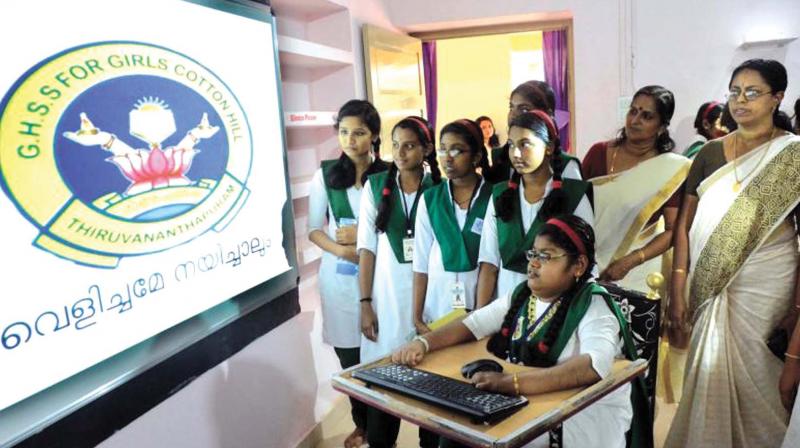Rani stressed English for skillset
State celebrates 200th anniversary of Rani Gowri Parvathy Bayi proclaiming education for all'.

This month, Kerala is celebrating the 200th anniversary of the introduction of local language education in the state through the proclamation on ‘education for all’ issued during the reign of Rani Gowri Parvathy Bayi in 1817 that made education the primary concern of the state. The proclamation made it clear that “the state should defray the entire cost of education of its people in order that there might be no backwardness in the spread of enlightenment among them, that by diffusion of education they might become better subjects and public servants and that the reputation of the state might be advanced thereby.” The beginning of modern education in Travancore can also be traced to this royal proclamation, through which the state provided budgetary support for education. A rule was enforced to ensure that every school appointed two teachers paid directly by the state.
Rani Gowri Lakshmi Bayi, the mother of Swathi Thirunal, had died young leaving Swathi in the hands of her sister Rani Gowri Parvathy Bayi who took over in 1815 as the regent Rani and remained there till Swathi Thirunal assumed office in 1829 on attaining the age of 16. The proclamation was issued on Edavam 19 of the Malayalam era of 992 (June 1817). She also fixed the wages for teachers as 50 ‘panam,’ the currency which was in use then in Travancore. The teachers appointed then were called Vadhyars. Rani said in the proclamation that Malayalam, Tamil, Mathematics and Jyothisham should be taught in schools. Jyothisham was a form of astronomy used for understanding the climate at the time. It was utilised for determining the agriculture season. For harvesting for Kannikoythu, seeds have to be sown in the heavy rains of Edavam known as Edavapathi. Likewise, for harvesting for Makarakoythu, sowing is done in the month of Thulam known as Thulavarsham.
Rani also appointed officials to assess the learning outcome. They would evaluate the knowledge level of the student and how efficiently knowledge was transmitted by the teacher to the students. The proclamation said that the objective was to ensure the welfare and reputation of the public, which is the objective even now-- to empower the public to get employment and intellectual advancement. In another significant decision of the period, teachers were appointed for teaching English to soldiers to help them interact better with British officers. English education was introduced as part of enhancing the skill needed for employment.
Actually, even before the missionaries established a network for educational institutions, there was local intervention to make education popular. It was not just external compulsion but local interventions that led to the development of education in the state. I am not arguing that missionaries did not make any contribution in popularising education. They played their part in the introduction of printing technology and imparting knowledge. For example, though Chandu Menon wrote ‘Indulekha’ in Malayalam, it was his familiarity with novel as a literary form due to his English education that prompted him to write it. Rani introduced Malayalam education because the officials could serve the people better if they had knowledge of the local language.
This is also the reason why the state government has made Malayalam compulsory now. Take for example the students in CBSE and ICSE schools who do not learn Malayalam. They may speak in Malayalam as they learn the language from their parents. However, they would not be able to serve the people efficiently if they enter government service without learning to write Malayalam, especially because Malayalam has been made the official language. They can clear PSC tests as questions of 10 marks are from Malayalam. It is poetic justice that the 200th anniversary of Malayalam language teaching in the state has coincided with the government decision to make Malayalam compulsory in schools.
(As told to Sabloo Thomas)
(V. Karthikeyan Nair, director of Kerala Bhasha Institute, is former director of higher secondary education and a retired professor of history).

